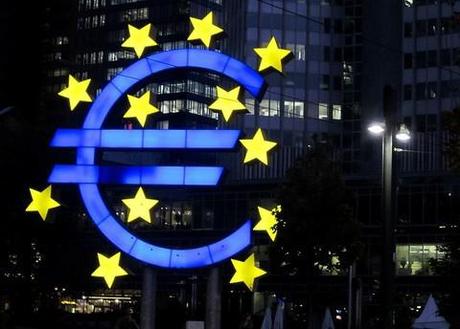
Not in the clear yet. Photo credit: Stephanie Jones http://flic.kr/p/awo1jA
When, in the wee hours of Thursday morning, an agreement was penned to help tackle Europe’s economic crisis, many hoped that things might finally be looking up for the eurozone and the wider European economy. However, as the plan’s details (or lack thereof) sink in, and analysts consider its implications, there’s been no shortage of concerns being voiced. Does this deal really indicate positive change to this colossal problem?
“The day may yet come when the eurozone finally agrees a comprehensive package to end the crisis, but this was not the day”, wrote Wolfgang Münchau for the Financial Times A-list blog.
The euro is not the answer. Germany is making demands that simply cannot be met, wrote Simon Jenkins in The Guardian’s Comment is Free. “As long as there is no united European state, there can be no united European currency”, and it is therefore the “politics” that mean that Germany’s hopes of greater unification cannot be achieved. Jenkins wrote that Europe is in need of a working constitution that affords nations “legislative space to breath free”, but said “we were a million miles from it today”.
“This was a great shift in power, delivered in the unpoetic prose of Euro-jargon … The diminished influence of Europe in the world was made flesh”, said a piece in The Times(£).
The fall of Europe. The leader in The Times (£) painted a bleak picture of Europe’s future. As Europe looks to China for help, a dent formed in one of the “founding and sustaining impulses of the European Union, to act as a counterweight to” the US and emerging powers. The rescue package highlighted Europe’s “diminishing global place” and failed to avert the crisis. “With the extra money they have found, the EU leaders may have bought time. But it is less clear that they have solved their problem.”
The Franco-German break-up. Mary Dejevsky saw the deal as further evidence of the crumbling relationship between France and Germany – an alliance that has been the keystone of Europe’s stability for over 60 years. Writing in The Independent, she said that economic woes aside, this rupture is what will define the European landscape in the future: “A new political configuration of Europe, with a stronger, more Prussian Germany and a more Latin France increasingly defining the continent, whatever the single currency’s fate.”
A rocky path. Although “this was no persuasive summit”, it did “largely accomplish the three things on the agenda”, wrote a Financial Times editorial. Leaders have their “sights firmly set on an ambitious horizon”, but be warned: “the financial crisis must first be vanquished – or it, not politicians, will determine Europe’s future.”
Pathetic. Alex Brummer was wholly unsympathetic of the European leaders’ plight, stating the deal is more “pathetic peashooter” than “big bazooka.” In The Daily Mail, he wrote that every element of the plan “looks fragile under scrutiny.” The bank recapitalisation is “totally inadequate”, the bailout fund is “not properly determined” with “no sign” of how it will be achieved, and while the Greek debt write-down is “a step in the right direction”, it is unclear if it will happen, or indeed, be sufficient to save the day. Furthermore, “if Greece is allowed to write off half of its debts, what is to stop other countries from expecting the same treatment?”
Moving forward. It’s not all bad news, claimed the Christian Science Monitor’s editorial. While the “patchwork of solutions is only a temporary fix”, the latest summit does at least show an attempt from the leaders to “move forward, not backward.”

